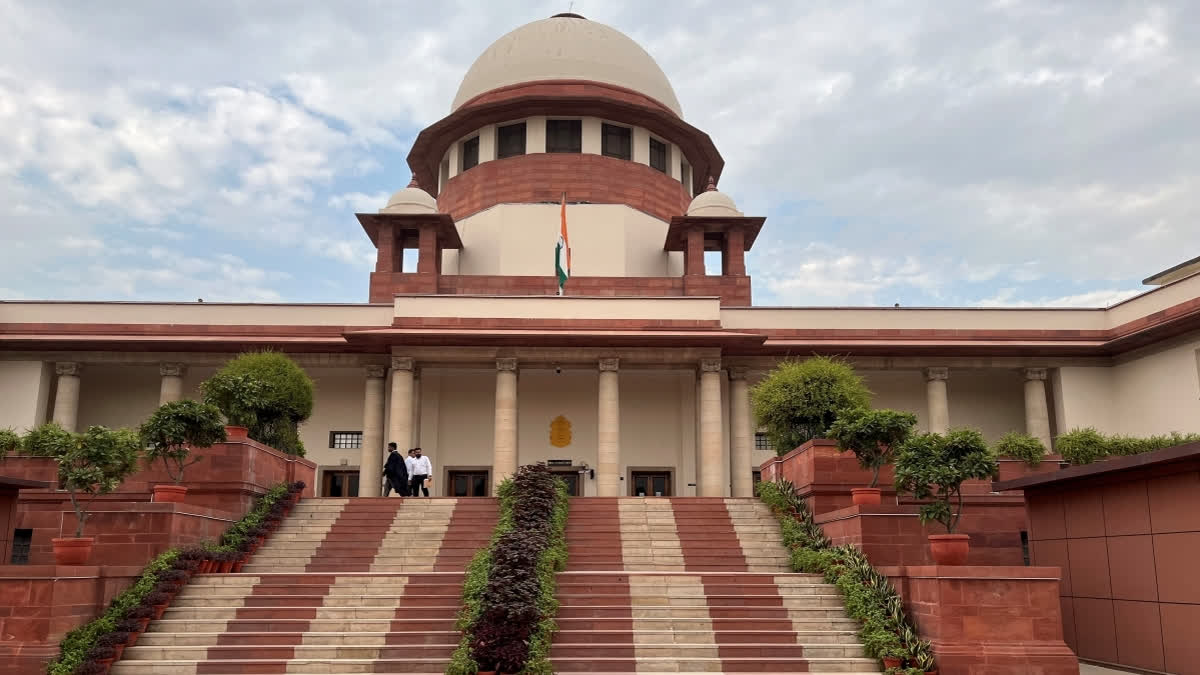New Delhi:The Supreme Court has allowed Karnataka government’s plea to recall a witness in 2008 Bengaluru serial blasts case to authenticate seized devices, saying that the object of a fair trial is that no guilty should go scot-free and no innocent should be punished.
A bench comprising Justices Vikram Nath and Rajesh Bindal said: “Fair trial in a criminal case does not mean that it should be fair to one of the parties. Rather, the object is that no guilty should go scot-free and no innocent should be punished”.
Serial bomb blasts took place in Bangalore on July 25, 2008, and at the instance of an accused, electronic devices such as one Laptop, one external hard disc, 3 pen drives, 5 floppies, 13 CDs, 6 SIM cards, 3 mobile phones, one memory card and 2 digital cameras were recovered and seized. These were sent for examination to the CFSL, Hyderabad and a report was received on November 29, 2010, which was submitted before the trial court on October 16, 2012.
The accused filed an application dated March 6, 2017, objecting to taking the report in evidence in the absence of a certificate under Section 65- B of the Indian Evidence Act. Immediately, thereafter a certificate dated April 27, 2017, was issued under Section 65-B of the Act and an application was filed under Section 311 of the Cr.P.C. seeking to recall M. Krishna, Assistant Government Examiner, Computer Forensic Division, CFSL, and to produce the aforesaid certificate in evidence.
The trial was still pending and the trial court without appreciating the legal position in this regard dismissed the application. The order was upheld by the high court. It was primarily for the reason of delay in producing the certificate under Section 65B of the Act. The apex court said a certificate under Section 65-B of the Act, sought to be produced is not evidence which has been created now and it is meeting the requirement of law to prove a report on record.
The apex court set aside the Karnataka High Court order and the trial court orders rejecting the plea to recall a witness M Krishna, a prosecution witness to produce a certificate under Section 65B of Indian Evidence Act related to seized electronic devices.
The apex court said by permitting the prosecution to produce the certificate under Section 65B of the Act at this stage will not result in any irreversible prejudice to the accused, and the accused will have full opportunity to rebut the evidence led by the prosecution. “This is the purpose for which Section 311 of the Cr.P.C. is there. The object of the Code is to arrive at truth….In the case in hand, this exercise of power is required to uphold the truth, as no prejudice as such is going to be caused to the accused," the bench said, in the judgment delivered on November 6.
The bench accepted Additional Advocate General Aman Panwar’s contended that the primary evidence in the form of electronic devices was already on record along with the report from CFSL, and it is only because the accused raised an objection to the production of that report and not to take any chances, the prosecution filed an application under Section 311 CrPC to re-summon M Krishna. Advocate Balaji Srinivasan, appearing for the respondent accused, submitted that there was no error in the orders passed by the trial court and the high court.
Also read: 'Very dangerous': SC asks Centre to frame guidelines on search, seizure of journalists' digital devices
